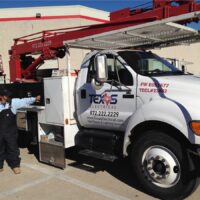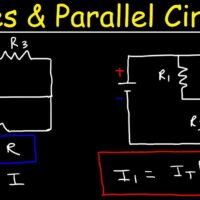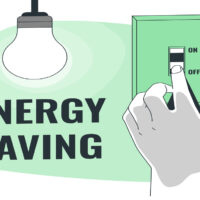A voltage stabilizer regulates the voltage supplied to electrical devices. It ensures consistent performance and protects against voltage fluctuations.
Voltage stabilizers are crucial in maintaining the longevity and efficiency of electrical appliances. These devices play an essential role in preventing damage caused by voltage spikes and drops. They provide a stable voltage output, safeguarding sensitive equipment like refrigerators, air conditioners, and computers.
By delivering a constant voltage level, voltage stabilizers enhance the performance and reliability of electronic devices. They are particularly valuable in areas with inconsistent power supply. Investing in a good voltage stabilizer can save you from frequent repairs and replacements, ensuring your appliances work smoothly. This makes voltage stabilizers an indispensable component in both homes and businesses.
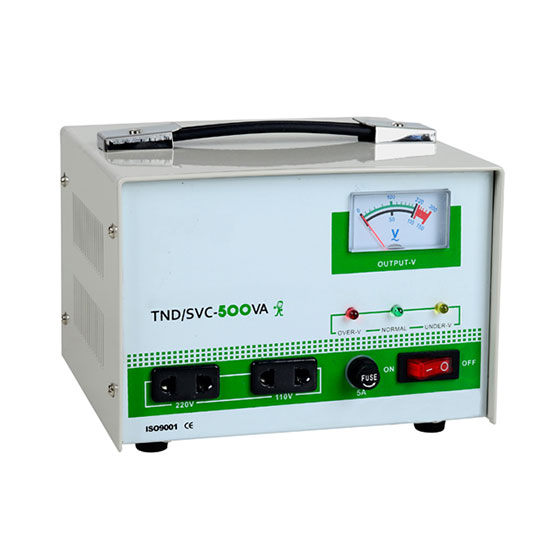
Credit: peacosupport.com
Importance Of Voltage Stabilizers
Voltage stabilizers are essential for maintaining a stable voltage level. They protect electronic devices from damage due to voltage fluctuations. Without a voltage stabilizer, your home appliances can malfunction or get damaged.
Protecting Home Appliances
Voltage stabilizers play a crucial role in protecting home appliances. Appliances like refrigerators, televisions, and washing machines need a stable voltage. Voltage fluctuations can harm these devices. A voltage stabilizer ensures a constant voltage supply. This prolongs the life of your appliances.
Key Benefits of Voltage Stabilizers:
- Prevents damage to appliances
- Ensures smooth operation of devices
- Reduces maintenance costs
Preventing Voltage Fluctuations
Voltage fluctuations are common in many areas. These fluctuations can cause serious damage to electrical equipment. A voltage stabilizer prevents these fluctuations. It provides a consistent voltage level to your appliances.
Here is a simple table showing the impact of voltage fluctuations:
| Voltage Level | Impact on Appliances |
|---|---|
| High Voltage | Overheats and damages circuits |
| Low Voltage | Causes underperformance and failure |
Using a voltage stabilizer ensures that your appliances receive the correct voltage. This prevents overheating or underperformance. It maintains the efficiency of your devices.
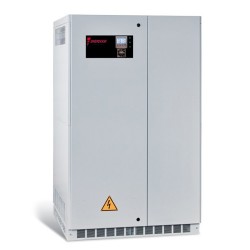
Credit: www.enerdoor.com
Types Of Voltage Stabilizers
Voltage stabilizers protect your appliances from voltage fluctuations. Understanding the types of voltage stabilizers helps in choosing the right one for your needs. Below are the main types of voltage stabilizers:
Relay Type
Relay Type voltage stabilizers are the most common. They use relays to regulate voltage. They are suitable for small appliances. They are simple and cost-effective.
| Pros | Cons |
|---|---|
| Inexpensive | Less precise |
| Easy to maintain | Limited lifespan |
Servo Controlled
Servo Controlled stabilizers provide better accuracy. They use a servo motor to adjust voltage. These are ideal for sensitive equipment. They are more expensive than relay type stabilizers. They offer higher precision and reliability.
- High accuracy
- Suitable for sensitive devices
- Longer lifespan
Static Voltage Stabilizers
Static Voltage Stabilizers use electronic circuitry to control voltage. They have no moving parts. They are highly reliable and precise. They are suitable for industrial applications. They offer fast correction speed.
- Highly reliable
- Fast response time
- Suitable for industrial use
Key Features To Consider
Choosing the right voltage stabilizer is essential for protecting your appliances. There are several key features to consider when selecting a voltage stabilizer. These features ensure the device works efficiently and safely.
Input Voltage Range
The input voltage range is the range of voltage the stabilizer can handle. A wider input voltage range means better performance during voltage fluctuations. It ensures your appliances stay protected even during extreme conditions.
Output Voltage Accuracy
Output voltage accuracy refers to how closely the stabilizer maintains the desired voltage. Look for stabilizers with high accuracy to ensure your appliances receive the correct voltage. This protects them from overvoltage and undervoltage issues.
Overload Protection
Overload protection prevents the stabilizer from damage due to excessive load. This feature automatically cuts off the power if the load exceeds the stabilizer’s capacity. This ensures the safety of both the stabilizer and connected appliances.
| Feature | Description |
|---|---|
| Input Voltage Range | Handles a wide range of voltages for better performance. |
| Output Voltage Accuracy | Maintains the desired voltage closely. |
| Overload Protection | Cuts off power during excessive load to prevent damage. |
- Wider input voltage range ensures better performance.
- High output voltage accuracy protects your appliances.
- Overload protection safeguards both stabilizer and appliances.
Installation Tips
Installing a voltage stabilizer correctly ensures the protection of your electrical appliances. Follow these installation tips to ensure the best performance and safety.
Choosing The Right Location
Select a location that is free from dust and moisture. Place the stabilizer on a flat, stable surface. Ensure the area is well-ventilated to prevent overheating. Avoid placing it near flammable materials.
Proper Wiring And Connections
Use quality cables and wires for connections. Ensure that the input and output wires are securely connected. Double-check all connections to avoid loose wiring. Consult an electrician if unsure about the wiring process.
Ensuring Safety
- Turn off the main power supply before installation.
- Use an appropriate circuit breaker for extra protection.
- Keep children away from the installation area.
Testing The Stabilizer
- Turn on the main power supply.
- Check the stabilizer for any unusual sounds.
- Monitor the voltage output to ensure stability.
Maintenance Tips
Regularly clean the stabilizer to remove dust. Inspect the wiring periodically for wear and tear. Replace any damaged wires immediately.
Maintenance Guidelines
Maintaining your voltage stabilizer ensures its longevity and efficiency. Regular upkeep prevents breakdowns and ensures optimal performance. Below are the key maintenance guidelines to follow.
Regular Inspections
Conducting regular inspections is vital. Check for any signs of wear and tear. Look at the wiring and connections. Ensure there are no loose parts. Regular checks help in identifying potential issues early.
- Inspect wiring and connections.
- Check for loose parts.
- Look for any physical damage.
Cleaning And Dust Removal
Dust can affect the performance of your voltage stabilizer. Cleaning and removing dust regularly is essential. Use a soft cloth for cleaning. Avoid using water or any liquid cleaners.
- Turn off the stabilizer.
- Use a soft cloth to wipe off dust.
- Ensure vents are clear of dust.
Professional Servicing
Professional servicing ensures your stabilizer works efficiently. Schedule a professional service at least once a year. Professionals can identify hidden issues. They can also perform detailed cleaning and maintenance.
| Service Task | Recommended Frequency |
|---|---|
| Detailed Inspection | Annually |
| Component Check | Annually |
| Internal Cleaning | Annually |
Common Issues And Solutions
Voltage stabilizers are essential for maintaining a consistent voltage level. They protect your appliances from voltage fluctuations. But, they can face some common issues. Here are some common problems and their solutions.
Overheating Problems
Overheating can cause serious damage to your stabilizer. Here are some causes and solutions:
- Blocked Ventilation: Ensure the stabilizer’s vents are not blocked.
- Overloading: Avoid connecting too many devices to the stabilizer.
- Faulty Components: Replace any damaged parts immediately.
Keep your stabilizer in a cool, ventilated area to prevent overheating.
Frequent Tripping
Frequent tripping can disrupt your appliance’s performance. Here are some solutions:
- Inspect Wiring: Check for any loose or damaged wires.
- Reduce Load: Disconnect some devices to reduce the load.
- Check for Short Circuits: Identify and fix any short circuits.
Always maintain a balanced load to avoid frequent tripping.
Noise Issues
Noise from your stabilizer can be annoying. Here are some tips to reduce noise:
- Tighten Loose Parts: Ensure all parts are securely fastened.
- Install Rubber Pads: Place rubber pads under the stabilizer to absorb vibrations.
- Regular Maintenance: Clean and service the stabilizer regularly.
Proper maintenance can keep your stabilizer quiet and efficient.
Energy Efficiency
Energy efficiency in voltage stabilizers is crucial. It helps save electricity and reduce bills. Modern stabilizers are designed to be energy-efficient. They ensure optimal power usage without compromising performance.
Reducing Power Consumption
Voltage stabilizers can significantly reduce power consumption. They maintain a steady voltage level. This prevents excess power draw from appliances. Here’s how they help:
- Constant Voltage: Stabilizers maintain a constant voltage. This ensures appliances run efficiently.
- Reduced Wastage: They minimize power wastage. This happens by avoiding voltage fluctuations.
- Extended Appliance Life: Stable voltage extends the life of electrical devices. This saves energy in the long run.
Consider using a voltage stabilizer to cut down on your energy bills.
Eco-friendly Models
Many voltage stabilizers are eco-friendly. They are designed with green technology. These models are better for the environment. Key features include:
| Feature | Benefit |
|---|---|
| Low Energy Consumption | Consumes less power, reducing your carbon footprint. |
| Recyclable Materials | Made from materials that can be recycled. |
| Efficient Design | Minimizes heat and energy loss. |
Choose eco-friendly stabilizers for a greener future.

Credit: www.d1spec.com.tw
Top Brands To Consider
Choosing a voltage stabilizer can be daunting. However, knowing the top brands helps. Here are some reliable manufacturers that are highly recommended.
Reliable Manufacturers
Several brands stand out in the voltage stabilizer market.
- V-Guard: Known for quality and durability. Ideal for home appliances.
- Microtek: Offers advanced technology and robust performance. Suitable for heavy-duty use.
- Luminous: Provides energy-efficient models. Great for both home and office use.
- Syspro: Renowned for innovative designs. Ensures consistent voltage output.
- Eveready: Trusted for reliability and longevity. Perfect for sensitive equipment.
Customer Reviews And Ratings
Customer feedback is crucial for choosing the best voltage stabilizer. Below is a table summarizing customer ratings for the top brands.
| Brand | Average Rating | Number of Reviews |
|---|---|---|
| V-Guard | 4.5 | 1500 |
| Microtek | 4.3 | 1200 |
| Luminous | 4.2 | 1000 |
| Syspro | 4.1 | 800 |
| Eveready | 4.0 | 600 |
Positive reviews highlight the product’s effectiveness and durability. Negative reviews often mention minor issues like noise levels. Overall, these brands enjoy high customer satisfaction.
Frequently Asked Questions
What Is A Voltage Stabilizer?
A voltage stabilizer regulates voltage fluctuations to protect electrical appliances. It ensures that devices receive consistent power.
How Does A Voltage Stabilizer Work?
A voltage stabilizer maintains a constant voltage level. It uses electronic circuitry to adjust the input voltage to a stable output.
Why Do I Need A Voltage Stabilizer?
Voltage stabilizers protect appliances from voltage spikes. They prevent damage and extend the lifespan of your devices.
Can A Voltage Stabilizer Save Energy?
Yes, a voltage stabilizer can help save energy. It ensures efficient power usage and reduces wastage.
Conclusion
Choosing the right voltage stabilizer ensures the safety and longevity of your electrical appliances. It protects against voltage fluctuations effectively. Invest in a reliable stabilizer to avoid costly repairs and downtime. Secure your home or business with a quality voltage stabilizer today.
Your appliances will thank you.


